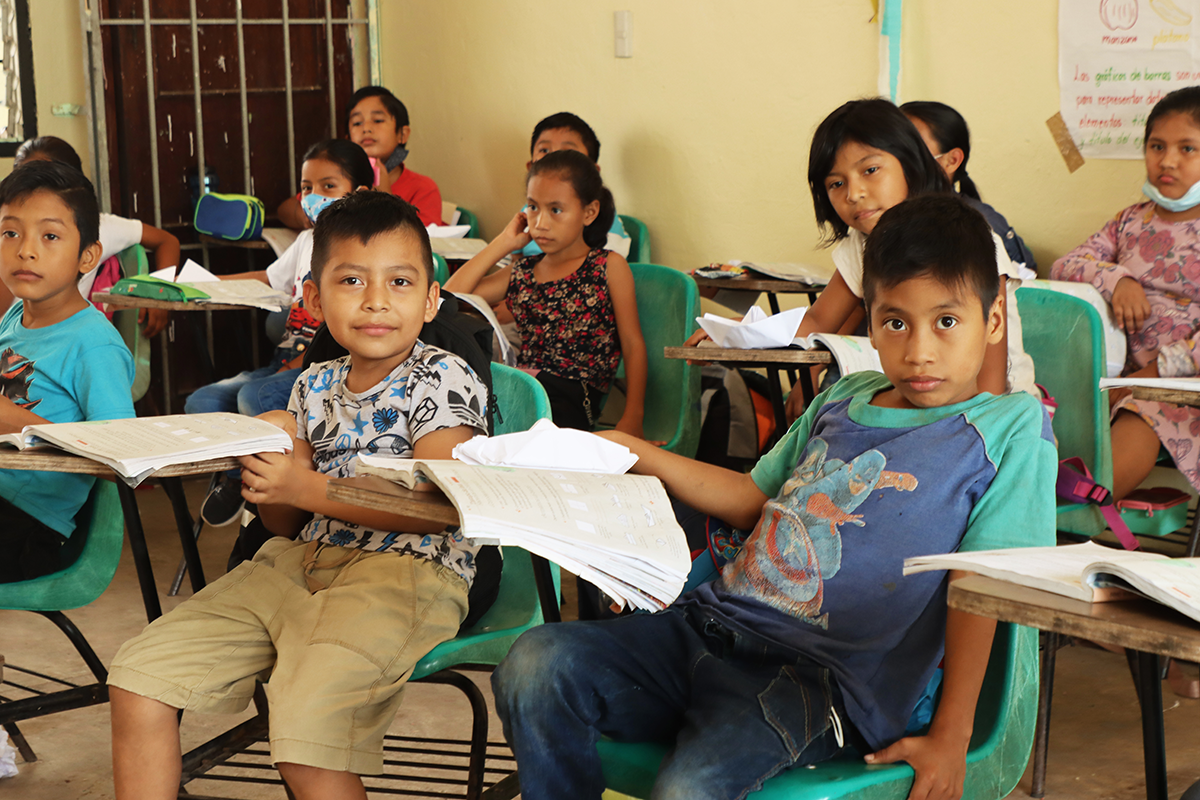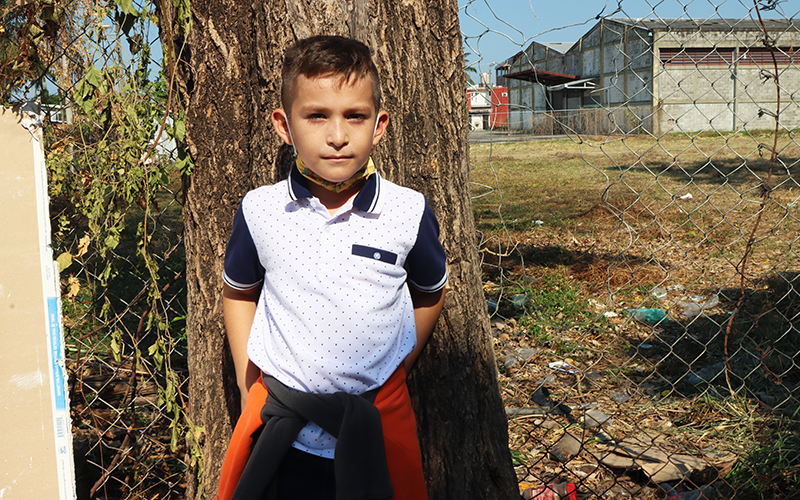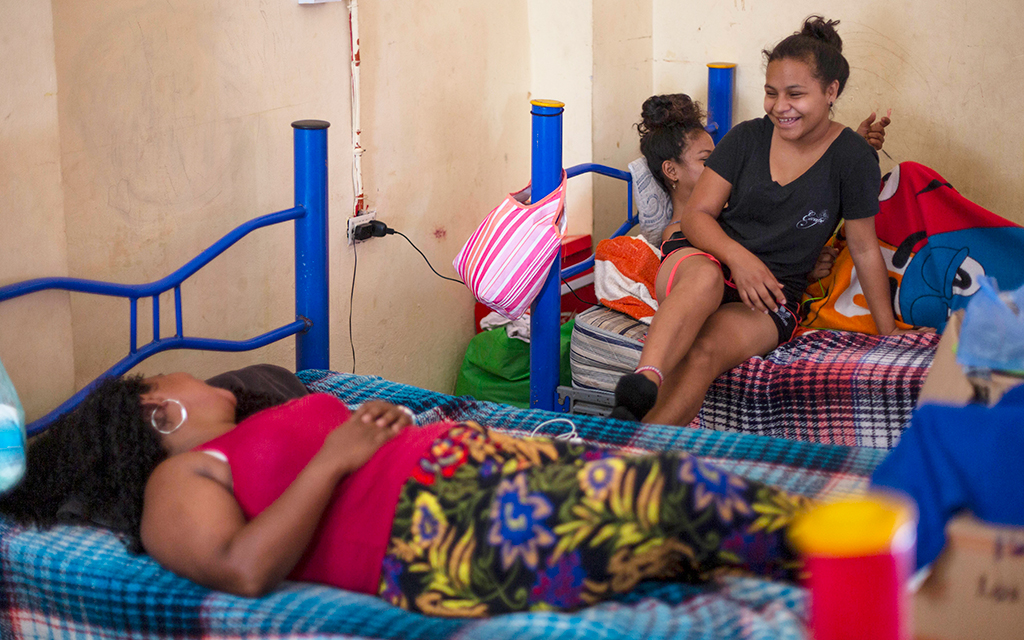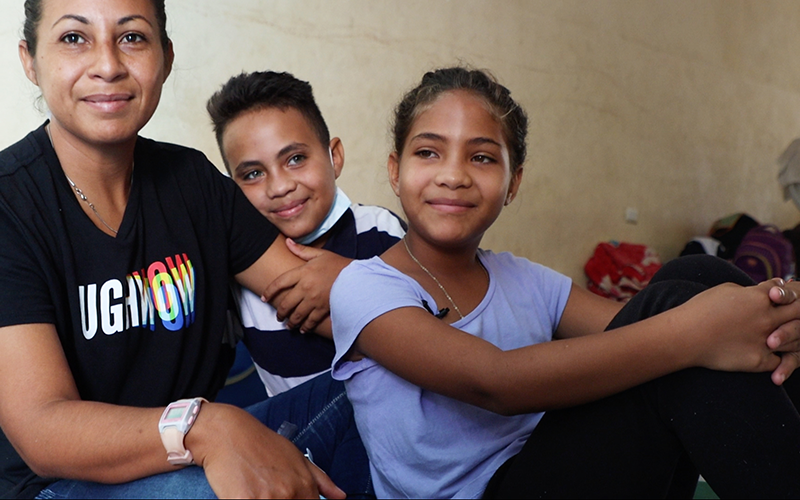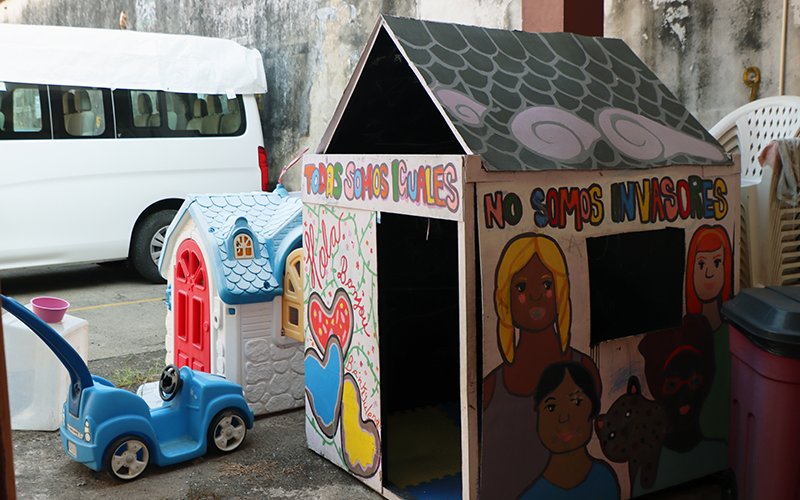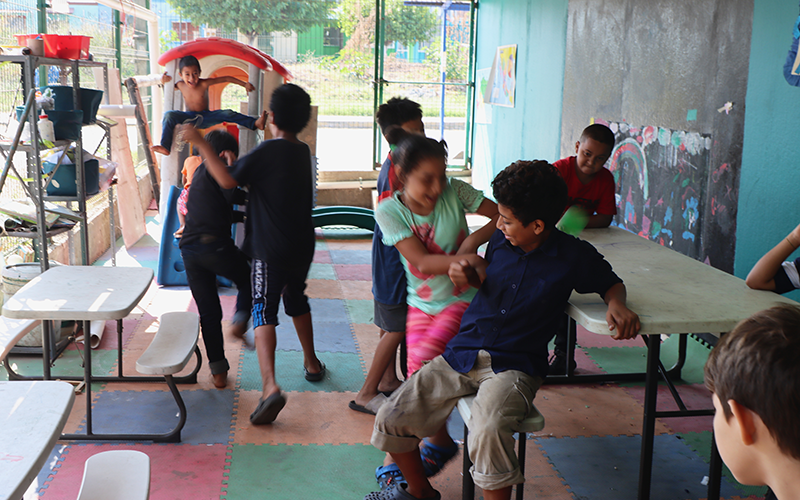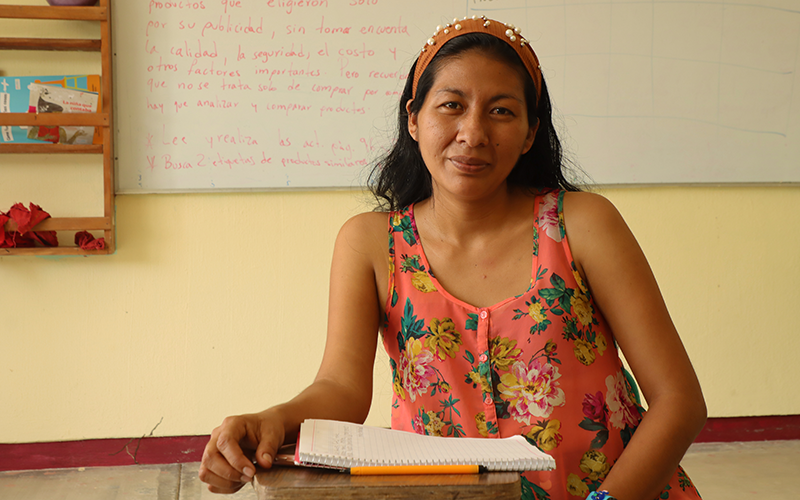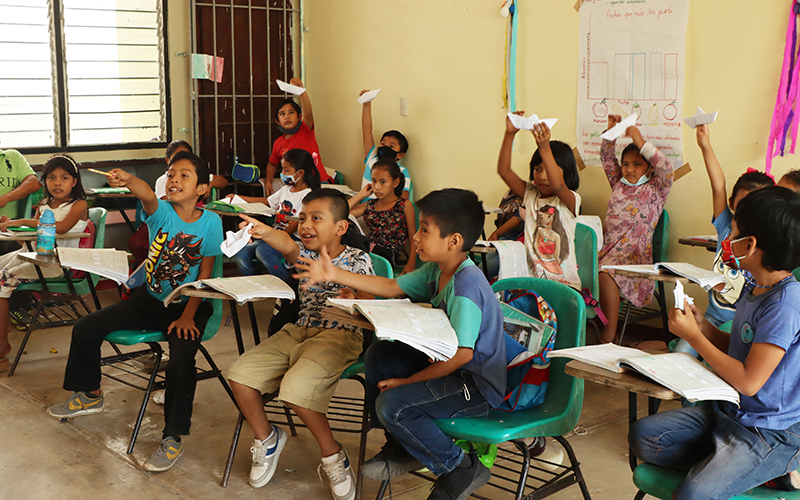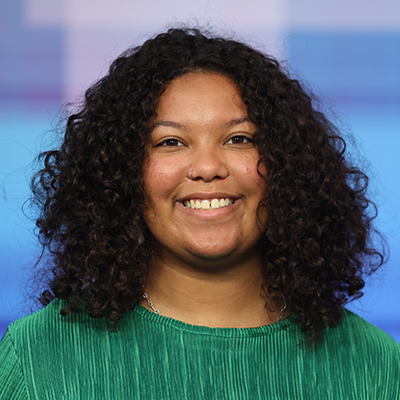Neither of her children has ever been to school, but they have aspirations.
Karina said she wanted to be a ballerina and would love to learn how to read. Román said he wants to be a police officer but couldn’t pinpoint his favorite school subject.
“I don’t know … anything. School is beautiful,” he said in Spanish.
Migrant children often are behind in their education and affected by the rigors of their journey. Many, experts say, should be receiving specialized attention. Studies also show that “trauma informed” schools can reduce the negative impact of traumatic experiences on children.
But any school, much less one that might offer specialized trauma therapy, is hard to find for migrant families who have suffered horribly along their journey.
This is something the Chirinos Baez family knows all too well.
Chirinos Báez said that on their journey to Tapachula, they crossed jungles where family members suffered injuries, struggled with diarrhea and other health issues, and witnessed fellow migrants die.
“But they’re used to it,” she said when explaining why the children don’t seem fazed by this. “They’ve seen death before.”
In 2018, the family survived a massacre in the mines where Chirinos Báez and her husband worked. The ownership of the mines changed, and Venezuelan employees lost their jobs. After refusing to leave, she said the government sent in armed men to remove the trespassers – one way or another.
Chirinos Báez remembers having a gun pointed to her face, and the only reason she survived was because the gunman saw she had children.
“He just told us to run.”
(Audio by
Athena Ankrah/Cronkite News)
Culture clash, limited resources
Parents who want to enroll their children in the local school system often are stymied by the required documentation, such as identification cards and school records from their home countries. Many families, and especially unaccompanied minors, do not carry such papers.
“Students have access to education, but it’s important to have documents,” said Mitzi Gómez, protection assistant of the International Organization for Migration (IOM) in Tapachula.
“Sometimes they get robbed of their documents, but schools are supposed to welcome them, and they take a test to see their level of reading and writing.”
But according to local activists, some migrants – especially Haitians – are being denied services, even by federal organizations.
Freddy Castillo, a Haitain migrant who works closely with the Haitian Bridge Alliance, a nonprofit that advocates for the rights of Black immigrants, said Haitians are getting no educational opportunities.
Castillo and other Haitians allegedly were told they can’t get help because there is too much demand from other migrants for food, housing and jobs.
“I don’t see our children in school,” Castillo said.
Some Tapachula shelters offer limited education services, but that only covers a fraction of families who need and want their children to be in school.
Buen Pastor has an on-site day care and school area at the back of the shelter, where the walls are painted teal and covered in artwork. In the far corner sits a plastic playground set, much too small for the older children.
